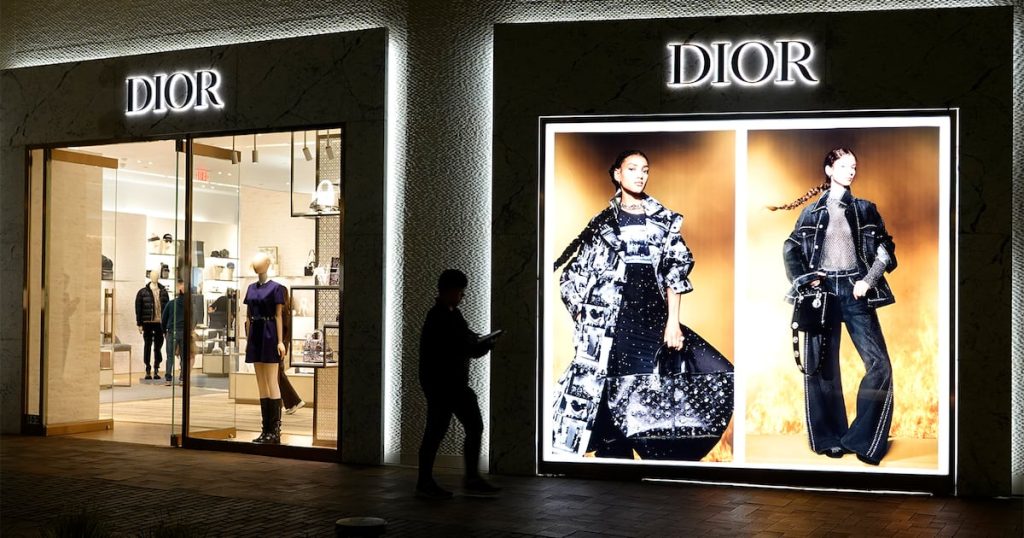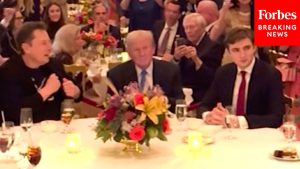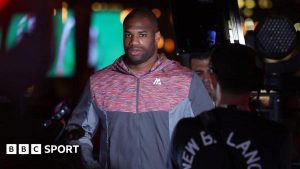
European luxury goods makers say they could draw on pricing power to offset the cost of any tariffs imposed by US President Donald Trump, but analysts say some brands may have limited room to hike prices.
Famous brands like LVMH’s Louis Vuitton or Kering’s Gucci are counting on a buoyant US market this year as China lags.
However, Trump has threatened new tariffs on the European Union due to trade surpluses it had with the United States, in a widening offensive that economists say could trigger a global economic slowdown.
Executives at Hermès and Kering, which make handbags and loafers that sell for thousands of dollars, said last week they could leverage their brands’ cachet to absorb any additional duties.
“If duties increase, we’ll increase our prices accordingly,” Hermès executive chairman Axel Dumas said on Friday after reporting results.
Kering CEO Francois-Henri Pinault signalled the same commitment earlier in the week, saying his brands, including Gucci, Balenciaga and Yves Saint Laurent, would “review (their) pricing strategy” in the event of tariffs.
“We know how to manoeuvre that,” he said.
Passing on Costs
Yet, years of aggressive price hikes, particularly during the post-pandemic boom, could make it harder for some brands to pass on higher import costs.
Most brands lifted prices by their most ever in recent years, analysts from firms including UBS, Citi and Bernstein said.
Chanel’s classic quilted flap bag has more than tripled in price since 2010, while the Lady Dior bag and Louis Vuitton Keepall travel bag have more than doubled, according to UBS.
“We’ve talked a lot about ‘greedflation’ for the past 12 months, the idea that you’ve gone too far, too high, too quickly. And at the end of the day, you’ve basically cut yourself off from that aspirational consumer,” HSBC analyst Erwan Rambourg said.
Cautious Pricing
A significant price rise would counter a recent trend for more cautious pricing policy, especially in the US market.
Dior, for example, kept US prices flat last year, while Louis Vuitton increased them by a little more than 2 percent, according to Paris-based market intelligence firm Data & Data, which monitors online retail prices for brand catalogues.
Chanel raised prices by 5.4 percent, a moderate move compared with previous years, while jewellers Tiffany and Richemont-owned Cartier and Van Cleef & Arpels slowed the pace of US increases to 4 percent to 6 percent, from over 8 percent in the previous year, the data showed.
“I think that the major brands’ room for manoeuvre in terms of price increases in the United States will be fairly limited in 2025,” Data & Data CEO Zouheir Guedri said.
“This would risk accentuating price differences between different regions and jeopardise costly efforts undertaken over the years to harmonise prices on a global scale.”
Morningstar analysts said in a recent note: “A 10 percent to 20 percent tariff on European luxury goods could depress luxury sales in the US, especially for companies like Burberry and Kering that focus more on an affluent and aspirational clientele as opposed to the ultra-rich patrons.”
Choppy Outlook
As Chinese demand stays subdued, Europe’s luxury companies are pinning their hopes on Americans in 2025, boosted by roaring equities and crypto markets.
Even though business with American customers is expected to grow fastest this year, at 6 percent, buoyed also by a strong dollar, sales to Chinese customers are set to drop 1 percent, UBS has forecast. But the outlook remains uncertain.
US consumer sentiment dropped unexpectedly in February to a seven-month low and inflation expectations rocketed as households feared they could pay the price for Trump’s trade policies.
Analysts at Citi noted spending habits of aspirational shoppers – consumers who stretch their budgets seeking to elevate their social status – remain choppy.
Land of Conquest
Hermès CEO Dumas last week said he still saw the United States as a “land of conquest” to generate growth, pointing to his group’s retail expansion into second-tier US cities, with upcoming openings in Phoenix and Nashville.
LVMH hinted it could further bulk up production there. CEO Bernard Arnault and his family have cultivated personal ties with Trump, with four of them attending the president’s inauguration last month.
“We believe the group is positioning itself to be able to negotiate with the US administration on potential tariffs by offering to produce more in the US, as is already the case for Louis Vuitton and could easily be done for other brands,” said analysts at HSBC.
Asked how he viewed lobbying efforts from Arnault in the United States, Kering-owner Pinault told Reuters “it’s certainly a good thing” if it helps the European luxury sector avoid additional duties.
However, like some other European luxury executives, Pinault ruled out any shifts of production to the US, saying that could dilute his group’s ‘Made in Europe’ image and would “make no sense.”
By Tassilo Hummel and Mimosa Spencer; Editing by Bernadette Baum







